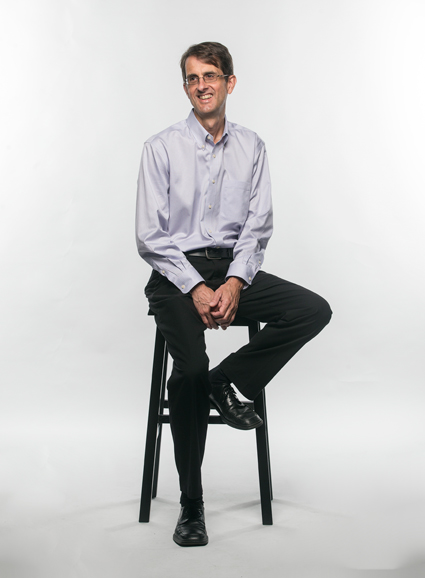
One of James Booth’s biggest research challenges is keeping his young subjects from getting wiggly while measuring their brain activity during an MRI scan. As a neurocognitive researcher, he uses functional magnetic resonance imaging (fMRI) to tease out how children’s brains develop academic skills.
“We spend a lot of time trying to get kids to stay still in the scanner while they complete the reading and math games we use to study their brain function,” he said. Booth has used neuroimaging to accurately diagnose children with attention deficit hyperactivity disorder and to predict which children will show larger gains in reading and math. Most recently, he studied preschoolers to determine what aspects of language are predictors of academic gains.
“As we better understand the mechanisms underlying academic skills, we can more accurately identify and treat children who have disabilities,” he said. “If we know which children are likely to show little gains, then we can intervene early.”
Booth’s career in the sciences was sparked as an undergraduate at the University of Michigan, where he was given a chance to collaborate with a prominent researcher studying cross-cultural differences in academic skills.
“The idea of doing experiments to produce new knowledge excited me then and still does to this day,” he said. “In fact, some of my work still examines cross-cultural differences, but does so now from a neuroscience perspective.”
He entered graduate school at the University of Maryland in the early 1990s, just as fMRI technology was coming on the scene.
The idea of doing experiments to produce new knowledge excited me then and still does to this day.
“For the first time we could noninvasively examine brain function with high spatial resolution in children, and this was very exciting to me,” he said. “I decided to devote my life to understanding the brain basis of academic skills.”
After 16 years at Northwestern University and the last three at the University of Texas–Austin, where he served as chair of the Moody College of Communication’s Department of Communication Sciences and Disorders, Booth was drawn to Peabody College for its pioneering educational neuroscience Ph.D. program. He said this new chapter in his career provides him the opportunity to collaborate with like-minded researchers as well as pay forward the mentorship he received during his own academic journey.
“Vanderbilt has the seeds and support to build something really unique and world-class in the area of educational neuroscience,” he said. “I really look forward to collaborating with colleagues in many departments, and especially interacting with students. I get a lot of satisfaction out of doing in-depth projects with them and helping them see the possibilities.”
Booth and his wife, Amy, and the couple’s three children love to travel and spend time outdoors. “Since we have been in Nashville, we have already been to the Smoky Mountains to hike up the Ramsey Cascades and white water raft down the Pigeon River,” he said. “I am sure we will travel to that beautiful part of the state many times in all seasons.”
View the complete list of new Vanderbilt University faculty for 2017-18.